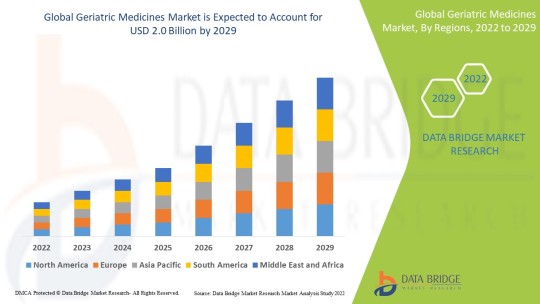#Antidiabetic Medications
Text
Patient-Centered Care in Endocrinology: Integrating Treatment with Quality of Life Considerations.
Endocrinology is a branch of medicine that deals with the endocrine system, which consists of glands that produce hormones. Hormones are chemical messengers that regulate various bodily functions, including metabolism, growth and development, sexual function, and mood. When the endocrine system malfunctions, it can lead to a wide range of health issues that may require treatment by an endocrinologist.
Endocrinologists are medical specialists who diagnose and treat hormone-related disorders. They have expertise in managing conditions such as diabetes, thyroid disorders, adrenal gland disorders, pituitary gland disorders, and reproductive disorders. Endocrinology treatment aims to restore hormonal balance and alleviate symptoms to improve the patient's quality of life.
Here are some common conditions that may require consultation with an endocrinologist:
1. Diabetes:
Endocrinologists play a crucial role in managing diabetes, a chronic condition characterized by high blood sugar levels. They help patients with type 1 diabetes, type 2 diabetes, gestational diabetes, and other forms of the disease by prescribing medication, recommending lifestyle changes, and providing education on blood sugar monitoring and insulin administration.
2. Thyroid Disorders:
The thyroid gland regulates metabolism and energy levels by producing thyroid hormones. Thyroid Disorders such as hypothyroidism (underactive thyroid) and hyperthyroidism (overactive thyroid) can disrupt this balance. Endocrinologists assess thyroid function through blood tests and imaging studies and prescribe medications or other treatments to manage thyroid disorders effectively.
3. Adrenal Gland Disorders:
The Adrenal glands produce hormones such as cortisol, aldosterone, and adrenaline, which are essential for regulating stress response, metabolism, and blood pressure. Conditions like Cushing's syndrome, Addison's disease, and adrenal tumors can affect adrenal function. Endocrinologists diagnose these disorders using hormone tests and imaging techniques and develop individualized treatment plans to restore hormonal balance.
4. Pituitary Gland Disorders:
The Pituitary Gland Disorder, often referred to as the "master gland," produces hormones that control other endocrine glands in the body. Disorders such as pituitary tumors, acromegaly, and hypopituitarism can result from pituitary dysfunction. Endocrinologists work closely with neurosurgeons and other specialists to diagnose and manage pituitary gland disorders using medication, surgery, or radiation therapy.
5. Reproductive Disorders:
Endocrinologists specialize in treating reproductive disorders that affect hormone levels and fertility in both men and women. Conditions such as polycystic ovary syndrome (PCOS), infertility, and menopause-related symptoms may require hormone therapy, assisted reproductive techniques, or other interventions to achieve desired outcomes.
In addition to these conditions, individuals experiencing symptoms such as unexplained weight changes, fatigue, irregular menstrual cycles, excessive thirst or urination, and changes in libido or sexual function should consider consulting an endocrinologist. A thorough evaluation by an endocrine specialist can help diagnose underlying hormonal imbalances and develop appropriate treatment strategies tailored to the patient's needs.
Conclusion:
In conclusion, endocrinology treatment encompasses the diagnosis and management of various hormone-related disorders affecting the endocrine system. If you're experiencing symptoms suggestive of a hormonal imbalance or have been diagnosed with a hormone-related condition, scheduling a consultation with an endocrinologist can provide valuable insights and personalized care to improve your health and well-being.
#Hormone Replacement Therapy (HRT)#Insulin Therapy#Thyroid Hormone Replacement#Antidiabetic Medications
0 notes
Text
Diabetes Medication for Weight Loss: An Effective Approach to Manage Diabetes and Shed Pounds
Unearth the profound potential of diabetes medication in facilitating weight loss endeavors. Embark on an enlightening journey to grasp the multifarious types of antidiabetic drugs, discern their intricate mechanisms of action, and appreciate the paramount significance of personalized approaches to treatment. Discover a plethora of answers to frequently asked questions, coupled with comprehensive…

View On WordPress
#adherence to treatment#antidiabetic drugs#appetite suppression#behavioral therapy#blood sugar checks#calorie burning#choosing the right medication#combining with weight loss strategies#comprehensive treatment plan#diabetes medication#diet and exercise#doctor&039;s visits#Drug Interactions#efficacy and safety#FAQs#GI distress#GLP-1 Receptor Agonists#glucose absorption#glycemic control#healthcare professional#hypoglycemia#individual health conditions#individualized approach#Insulin therapy#Lifestyle Changes#lifestyle modifications#managing side effects#mechanism of action#medical check-ups#Medical History
0 notes
Text
Glimepiride And Metformin Hydrochloride Tablets

Glimepiride and Metformin Hydrochloride (SR) Tablets should be taken exactly as prescribed by a healthcare provider to ensure optimal effectiveness and safety.
#glimepiride#Metformin Hydrochloride#antidiabetic#type 2 diabetes#diabetes#medication#health and wellness#treatment#aplonishealthcare
0 notes
Note
Hey babe, wanna hear something hot? *whispers* history of metformin





Ok okay I'll talk
So metformin is commonly thought of as the most boring of diabetes drugs. Like, everyone who has ever thought about maybe having type 2 diabetes is taking it unless it gives them diarrhea, and even then their doctor still probably wants them to take it. But it's a first line because it's old, it's cheap, it doesn't often cause hypoglycemia, and it has relatively few side effects compared to other diabetes drugs. Also, like a lot of older drugs, it does way more than it says on the packaging. And a lot of stuff we're still learning about.
In order to talk about metformin, we have to talk about a plant called goat's rue. Goat's rue is a plant native to Europe, Africa, and Asia, and currently grows just about everywhere. In ancient times it was used as an anti-parasitic, a plague remedy, and to relieve the excessive urination caused by what might have been diabetes. In 1918 it was found to contain a chemical called galegine, which did lower blood sugar. Galegine as an anti-diabetes medication is probably too toxic to use long term. However, with a few chemical tweaks, it could become a drug that lowered blood sugar without the toxic effects. Metformin was born.
Metformin came out in 1923 and is a type of drug called a biguanide. it's actually the only type in it's class still available as an anti-diabetic agent, because the other drugs in it's class that came out in the 1920s and 30s caused lactic acidosis and liver problems (similar to the types of reactions seen with galegine), and were taken off the market.
Metformin (and pretty much all oral antidiabetic agents in development at this time) didn't do well initially, probably because they came out the same decade as insulin, and insulin was a lot more effective at treating any kind of diabetes.
It fell out of use extremely quickly, and didn't get picked up again until the 1940s, when US access to antimalarial drugs was cut off, just as a war in the pacific was ramping up. Metformin was evaluated as an antimalarial during WWII, and while noted to have some anti-malarial properties (particularly as a malaria preventative) it also was noted to significantly lower blood sugar in diabetic patients- while not lowering blood sugar very much at all in non-diabetic patients.
This effect, rather than it's antimalarial properties, was what got scientists really interested. Unfortunately, it would not be until 1957 in France that metformin had its first major studies to determine that it did, indeed, work against diabetes. Metformin lost the race to the "first" (successful) oral antidiabetic agent by a year, to a different drug that was found while looking for a new antibiotic- Diabenese.
Metformin became a commercial success in France, while Diabenese became successful in the United States. Metformin would actually not be approved for use in the US until 1995.
But now we get to talk about what metformin does and why it's so freaking cool.
Type 2 Diabetes- lowers A1C (a measure of blood sugar control) by 1-2 full points
Prevents/reverses weight gain due to antipsychotics
Prevents and treats malaria
Makes the flu shot work better
Decreases severity of respiratory illness and complications related to the flu
Changes gut microbiome for the better
Regulates periods and reduces other symptoms in people with PCOS
Lowers risk of breast, colon, and prostate cancer
Lowers risk of dementia
Lowers risk of stroke
May increase lifespan
71 notes
·
View notes
Text
32 notes
·
View notes
Text
Bulgaria's Minister of Health, Prof. Hristo Hinkov, has issued a crucial order prohibiting the export of essential medications, encompassing insulin, blood sugar-lowering drugs, and antibiotics for children. The decision, effective from today, November 2, will remain in place until December 31, 2023, aiming to address the alarming shortage of life-saving medicines.
The comprehensive order extends beyond insulin to include analogs, blood sugar-lowering drugs, and antibiotics intended for pediatric systemic use, highlighting the gravity of the situation.
Minister Hinkov's action followed urgent appeals from the Chairman of the Health Care Commission in the National Assembly, Kostadin Angelov, and the co-chairman of the DPS party, Delyan Peevski, who called for immediate measures to halt the export of these critical drugs.
This development is a response to a plea from more than 180 diabetes patients who raised concerns about a systemic shortage of two types of insulin available in the country's pharmacy network.
Elitsa Sirakova, the initiator of the patient's appeal, expressed her frustration, saying, "I want to have a guaranteed amount of insulin so that we can live peacefully and not wonder every month what we will do."
The issue of medication unavailability also took center stage during a press conference held by the Physicians' Union today. They reiterated their demand for the reinstatement of paper prescriptions for antidiabetic medicines and antibiotics to alleviate the crisis.
This urgent move by Bulgaria's Ministry of Health underscores the critical need to secure the supply of vital medications for the nation's citizens, especially children and those suffering from diabetes, in the face of an ongoing shortage.
8 notes
·
View notes
Text

Burdock root
!!DO NOT USE THIS AS REAL LIFE MEDICAL ADVICE!!
A hardy plant that grows best in loamy soil and blooms in Greenleaf and Leaf-fall.
General medical uses
Antidiabetic
Anti-inflammatory
Antioxidant
Antitumor
Burns
Chondrogenesis (development of cartilage)
Cytotoxic
Increases urine output
Lipid lowering agent
Neuroprotective
Food
Despite it's harsh taste burdock root is a good source of fiber.
11 notes
·
View notes
Text
Blood Sugar Control Supplements: Exploring Potential Benefits and Considerations

Maintaining optimal blood sugar control is crucial for overall health, particularly for individuals dealing with diabetes or those seeking to prevent its onset. While proper diet, exercise, and medication are cornerstones of blood sugar management, some individuals may be interested in exploring the potential benefits of supplements. It is important to note that supplements should not be used as a substitute for professional medical advice or prescribed medications. However, certain supplements have been studied for their potential effects on blood sugar regulation. In this article, we will delve deeper into these supplements, highlighting their mechanisms of action and possible considerations.
1. Chromium:
Chromium is an essential mineral that plays a vital role in carbohydrate and lipid metabolism. It has been studied for its potential to enhance insulin sensitivity and improve blood sugar control. Chromium picolinate and chromium polynicotinate are the two commonly available forms of chromium supplements. Research suggests that chromium supplementation may aid in reducing fasting blood glucose levels and improving glucose tolerance in individuals with diabetes or insulin resistance. Nevertheless, further studies are needed to confirm its overall effectiveness and recommended dosage.
2. Cinnamon:
Cinnamon, a popular spice derived from the bark of certain trees, has gained attention for its potential blood sugar-lowering effects. It contains bioactive compounds that mimic insulin's action and may improve insulin sensitivity. Research has shown that cinnamon supplementation can lead to a modest reduction in fasting blood sugar levels in individuals with type 2 diabetes. However, the optimal dosage and long-term effects of cinnamon supplementation require further investigation. It is worth noting that cinnamon supplements should be used cautiously, as excessive consumption may have adverse effects, particularly in individuals taking antidiabetic medications.

3. Alpha-Lipoic Acid (ALA):
Alpha-lipoic acid is a powerful antioxidant that can be obtained through diet or as a supplement. It has been studied for its potential benefits in blood sugar control and improving insulin sensitivity. ALA may help reduce oxidative stress, a common contributor to insulin resistance. Some research suggests that ALA supplementation can lead to a modest improvement in blood sugar levels and peripheral neuropathy symptoms in individuals with diabetes. However, more extensive research is needed to establish optimal dosages, long-term safety, and potential interactions with medications.
4. Magnesium:
Magnesium is an essential mineral involved in numerous physiological processes, including glucose metabolism. Low magnesium levels have been associated with insulin resistance and impaired glucose regulation. Supplementing with magnesium may improve insulin sensitivity and blood sugar control. However, the evidence regarding its direct effects on blood sugar levels is mixed. Magnesium-rich foods, such as leafy green vegetables, whole grains, and nuts, are recommended as the primary source of magnesium intake. If considering magnesium supplementation, it is important to consult with a healthcare professional to determine the appropriate dosage and monitor for potential interactions with medications.
5. Berberine:
Berberine is a bioactive compound found in several plants, including goldenseal and barberry. It has been used in traditional medicine systems for its potential antidiabetic effects. Research suggests that berberine may help lower blood sugar levels by improving insulin sensitivity and reducing glucose production in the liver. Studies have shown that berberine supplementation can lead to significant reductions in fasting blood glucose levels and HbA1c levels (a long-term measure of blood sugar control) in individuals with type 2 diabetes. However, its use should be approached with caution, especially when taken in combination with other medications, due to potential interactions and side effects.
6. Probiotics: Probiotics are live microorganisms that can have beneficial effects on gut health. Studies suggest that probiotics may help improve insulin sensitivity and blood sugar control in individuals with type 2 diabetes. Probiotic supplementation has shown some promise in improving blood sugar control and reducing inflammation in individuals with type 2 diabetes. However, more research is needed to determine the specific strains of probiotics and the optimal dosage for blood sugar management.
7. Fenugreek: Fenugreek is an herb with potential blood sugar-lowering effects. Studies suggest that fenugreek may help slow down the absorption of carbohydrates and improve insulin sensitivity. Fenugreek supplementation has shown some benefits in improving blood sugar control in individuals with type 2 diabetes, but more research is needed to determine the optimal dosage and duration of fenugreek supplementation.

8. Gymnema sylvestre: Gymnema sylvestre is an herb used in traditional Indian medicine for diabetes management. Studies suggest that gymnema may help reduce blood sugar levels by suppressing sugar cravings and reducing glucose absorption. Gymnema sylvestre has shown some promise in improving blood sugar control in individuals with type 2 diabetes, but more research is needed to determine the optimal dosage and duration of gymnema supplementation.
9. Bitter melon: Bitter melon is a tropical fruit with potential blood sugar-lowering effects. Studies suggest that bitter melon may help increase insulin production and improve insulin sensitivity. Bitter melon has shown some benefits in improving blood sugar control in individuals with type 2 diabetes, but more research is needed to determine the optimal dosage and duration of bitter melon supplementation.
Conclusion: While certain supplements show promise in blood sugar control, it is crucial to approach their use with caution and in consultation with a healthcare professional. These supplements, including chromium, cinnamon, alpha-lipoic acid, magnesium, and berberine, have been studied for their potential benefits in blood sugar regulation. However, their efficacy, optimal dosages, long-term safety, and potential interactions with medications require further investigation. It is important to prioritize a well-rounded approach to blood sugar management, including a balanced diet, regular exercise, prescribed medications, and ongoing medical guidance.
2 notes
·
View notes
Text
EXPERT HERBALIST
Health Benefits of Herbal Tea
Herbal teas, also called tisanes, are caffeine-free infusions of leaves, roots, seeds and flowers. Some like chamomile tea have calming properties while others like peppermint can help with digestion and alleviate nausea. Because herbal tea doesn’t use the Camellia sinensis plant, it isn’t considered true tea. Nevertheless, many enjoy its health benefits and stress-relieving properties.
Ginger
Ginger has a number of health benefits. It is an anti-inflammatory and improves digestive function, which can be a problem for many people. It also has antioxidants, and it boosts the immune system. Ginger is also beneficial for the heart as it encourages blood circulation and lowers bad cholesterol. It can help to relieve symptoms of indigestion and the common cold. It also has a calming effect and helps with depression and anxiety. Hibiscus tea is an excellent source of antioxidants. It can protect against some strains of bird flu and can help to lower blood pressure.
Rosemary
Rosemary tea is a natural diuretic, which helps to reduce fluid retention and lower blood pressure. It also helps to improve mental function and memory. It has been shown to relieve headaches and minor aches and pains. It is also a great way to relax before sleep. It is a great source of calcium, iron, and vitamins. It contains healthy compounds like rosmarinic acid and caffeic acid, which can help prevent free radical damage. It also contains anti-inflammatory properties, which can help reduce pain and inflammation. This herbal tea is very easy to make and can be enjoyed at any time of the day. It is rich in vitamin C and antioxidants, which can help with digestion and boost the immune system. It also has anti-bacterial properties and can be used to treat indigestion. It can also be a great way to relieve stress and anxiety. This tea can be made with a variety of add-ins, such as thyme, lemon juice, or honey.
Olive leaf
Ancient cultures used olive leaf to reduce fever and infection, soothe rashes and wounds and even cleanse the liver. Today we know it contains powerful phytochemicals called oleuropein and hydroxtyrosol which have incredible anti-oxidant properties. They boost immunity, improve blood sugar, lipid profiles and bone health. One of the most interesting benefits discovered is that olive leaf extract can lower blood pressure in cases of hypertension. In fact, a 2022 randomised control trial of identical twins showed that patients taking 1,000 mg/day of olive leaf extract had significantly reduced blood pressures. The oleuropein and hydroxytyrosol found in olive leaf also have hypoglycaemic and antidiabetic properties. However, it is important to talk to your physician before starting this herbal tea if you have diabetes. It could interact with blood glucose-lowering medications and cause hypoglycemia (lower than normal levels). It also has antihypertensive and cardiovascular properties, dilates coronary arteries and relieves arrhythmia. It also reduces cholesterol, and is gastroprotective, neuroprotective, antimicrobial, anticancer and antinociceptive (reduces the sensation of pain). This is why this delicious drink has been dubbed as the 'liquid gold'!
Peppermint
Peppermint is a common ingredient in herbal tea blends. It can help treat stomach ailments like indigestion and nausea. It may also reduce tension headaches, soothe sinuses and promote relaxation. It's loaded with menthol and menthone that give it a refreshing flavor. A recent study found that drinking peppermint tea eased symptoms of irritable bowel syndrome, including abdominal pain, gas and bloating. It can also ease nausea and vomiting related to chemotherapy. The plant contains phenols that can help prevent certain types of cancer and support the body's natural defense system. The herb is full of antioxidants, potassium, calcium and vitamins A and C. dandelion tea 's also high in magnesium, which can boost energy levels and aid in digestion. If you are looking to learn more about the many benefits of herbal teas, we recommend Sacred Herbs.
At Sacred Herbs, they aim to inspire daily herbal embrace. Find out more by visiting the Sacred Herbs website at https://www.sacredherbsblending.com Anastasia is the founder of Sacred Herbs. They craft flavorful blends and educate on proper herbal use for natural well-being. Our lives follow a rhythm: awakening, meals, work, and rest. With daily chances to nourish, minor shifts bring major benefits. A soothing herbal blend before bed or an energizing adaptogen instead of coffer can uplift mood and life quality. Join them at Sacred Herbs for herbal tea, herbalist services, and herbal medicine like Ayurveda, guiding you to vitality and balance. Incorporating herbs into a wellness business brings forth an array of advantages for both the enterprise and its clients. This is why they collaborate with cafes, spas, yoga studios, and fellow wellness professionals. Together, they curate tailor-made solutions utilizing herbal teas and consulting expertise. Some of the benefits include: enhanced health, heightened client satisfaction, distinctive offerings, sustainability, and a diversified revenue for business growth. Visit the Sacred Herbs website today to learn more!
2 notes
·
View notes
Text
Diabetes Drug Linked to Lower Risk of Dementia, Study Finds
Diabetes Drug Linked to Lower Risk of Dementia, Study Finds
Photo: Shutterstock (Shutterstock)
New research this week is the latest to suggest that some drugs meant to treat type 2 diabetes might also help prevent dementia in high-risk groups. The study found that older people who used a relatively older class of antidiabetic medication were less likely to develop dementia than those who used other common antidiabetic drugs. The findings might warrant…
View On WordPress
#Anti-diabetic medication#Clinical medicine#Cognitive disorders#Dementia#Diabetes#Gizmodo#Health#Learning disabilities#Medical#Medicine#Metformin#Pharma#Psychiatric diagnosis#RTT#Vascular dementia
2 notes
·
View notes
Text
Empagliflozin, sold under the brand name Jardiance among others, is an antidiabetic medication used to improve glucose control in people with type 2 diabetes, used to reduce the risk of cardiovascular death in adults with type 2 diabetes and established cardiovascular disease, used to reduce the risk of death and hospitalization in people with heart failure and low ejection fraction, and used to reduce the risk of cardiovascular death and hospitalization for heart failure in adults. It can be prescribed instead of metformin and has benefits over sulfonylureas. It may be used together with other medications such as metformin or insulin. It is not recommended for type 1 diabetes. It is taken by mouth.
Common side effects include urinary tract infections, fungal infections of the groin, and joint pains. Rarer but more serious side effects include a skin infection of the groin called Fournier's gangrene and a form of diabetic ketoacidosis with normal blood sugar levels. Use in pregnancy and breastfeeding is not recommended. Use is not recommended in those with significant kidney disease, though it may help slow the progression of mild kidney problems. Empagliflozin is an inhibitor of the sodium glucose co-transporter-2 (SGLT-2), and works by increasing sugar lost in the urine.
2 notes
·
View notes
Text
Gomutra Ark: A Natural Solution for Diabetes and Beyond
Gomutra ark, a traditional Ayurvedic remedy derived from cow urine, has been gaining popularity for its numerous health benefits, particularly in managing diabetes.
The Science Behind Gomutra Ark
Gomutra ark has been extensively studied for its antidiabetic and antioxidant properties. Research has shown that it significantly lowers blood glucose levels in diabetic rats, although its effect is less potent compared to the standard drug glibenclamide. The exact mechanism of action is not yet fully understood, but it is believed that sulfur present in cow urine might act like sulphonylureas, increase insulin receptor sensitivity, or enhance insulin release.
Visit Now: @ https://www.gomataseva.org/product/gomutra-ark/
Gomutra Ark for Diabetes Patients
Visit Now: @ https://www.gomataseva.org/product/gudmaradi-gomutra-ark-2/
For diabetes patients, Gomutra ark offers a natural and holistic approach to managing blood sugar levels. It can be used in combination with other herbal preparations to enhance its antidiabetic activity. Studies have demonstrated that regular consumption of Gomutra ark for 28 days can reduce mean blood glucose levels, making it a valuable adjunct therapy for diabetes management.
Formulations Available at Goseva
Goseva offers a range of Gomutra ark formulations, each with its unique blend of herbs and benefits. Here are some of the key formulations:
Visit Now: @ https://www.gomataseva.org/product/gaumutra-non-edible/
Punarnava Gomutra Ark: This formulation combines the antidiabetic properties of Gomutra ark with the rejuvenating properties of Punarnava, making it an excellent choice for managing diabetes and promoting overall health.
Visit Now: @ https://www.gomataseva.org/product/punaranava-gomutra-ark-2/
Kanchanar Gomutra Ark: This formulation incorporates the antidiabetic and antioxidant properties of Kanchanar, a plant known for its ability to reduce blood sugar levels and improve insulin sensitivity.
Visit Now: @ https://www.gomataseva.org/product/kanchanar-gomutra-ark-2/
Tulsi Gomutra Ark: This formulation combines the antimicrobial and antioxidant properties of Tulsi with the antidiabetic properties of Gomutra ark, making it an excellent choice for managing diabetes and promoting overall health.
Visit Now: @ https://www.gomataseva.org/product/tulsi-gomutra-ark/
Chobchini Gomutra Ark: This formulation incorporates the detoxifying properties of Chobchini, a plant known for its ability to purify the blood and promote overall health.
Visit Now: @ https://www.gomataseva.org/product/chobchini-gomutra-ark-2/
How to Use Gomutra Ark
Gomutra ark is typically consumed by mixing 10 ml of the formulation with a teacup of water, taken empty stomach in the morning and before sleeping. It is essential to follow the recommended dosage and consult with a healthcare professional before using Gomutra ark, especially if you have any underlying medical conditions.
Conclusion
Gomutra ark is a natural and holistic approach to managing diabetes and promoting overall health. With its antidiabetic and antioxidant properties, it offers a unique solution for those seeking a natural alternative to traditional medications. By incorporating Gomutra ark into your daily routine, you can experience the numerous health benefits it has to offer.
#100timeswashedghee#gircowghee#gircowgheeprice#a2ghee#a2cowghee#girgaughee#a2gircowghee#cowghee#bilonaghee#panchgavyaproducts
0 notes
Text
Geriatric Medicines Market Trends, Share, Opportunities and Forecast By 2029

This Geriatric Medicines market report has been prepared by considering several fragments of the present and upcoming market scenario. The market insights gained through this market research analysis report facilitates more clear understanding of the market landscape, issues that may interrupt in the future, and ways to position definite brand excellently. It consists of most-detailed market segmentation, thorough analysis of major market players, trends in consumer and supply chain dynamics, and insights about new geographical markets. The market insights covered in Geriatric Medicines report simplifies managing marketing of goods and services effectively.
Data Bridge Market Research analyses a growth rate in the global geriatric medicines market in the forecast period 2022-2029. The expected CAGR of global geriatric medicines market is tend to be around 6.50% in the mentioned forecast period. The market was valued at USD 1.20 billion in 2021, and it would grow upto USD 2.0 billion by 2029.
Download Sample PDF Copy of this Report to understand structure of the complete report @ https://www.databridgemarketresearch.com/request-a-sample/?dbmr=global-geriatric-medicines-market
Market Overview:
During the forecast period, the market for geriatric medications is anticipated to expand significantly. The expansion of this market can be attributed to emerging markets and significant investments in R&D. The growth of geriatric medicines market is enhanced by the growing cases of orthopedics diseases such as osteoporosis and arthritis, the vulnerable aging population and the rise in research and development activities conducted by many pharmaceutical companies. COVID-19 also had a major impact on the market growth.
Some of the major players operating in the Geriatric Medicines market are Pfizer Inc (U.S.), Otsuka Pharmaceutical Co., Ltd (Japan), AstraZeneca (U.K.), Bristol-Myers Squibb Company (U.S.), Allergan, Inc (Ireland), Dr. Reddy's Laboratories Ltd (India), Endo International plc (Ireland), Teva Pharmaceutical Industries Ltd (Israel), Sun Pharmaceutical Industries Ltd (India), Mylan N.V. (U.S.), Novartis AG (Switzerland), Lupin (India), Cipla Inc (India), Aurobindo Pharma (India), Torrent Pharmaceuticals Ltd (India), Sanofi (France), Merck & Co., Inc (U.S.), Apotex Inc (Canada) among others.
Global Geriatric Medicines Market Scope
The global geriatric medicines market is segmented on the basis of drug class, indication, route of administration, distribution channel and end-user. The growth amongst these segments will help you analyze meagre growth segments in the industries and provide the users with a valuable market overview and market insights to help them make strategic decisions for identifying core market applications.
Indication
Cardiovascular
Arthritis
Diabetes
Neurological
Cancer
Osteoporosis
Respiratory
Others
Drug Class
Analgesic
Antihypertensive
Statins
Antidiabetic
Proton Pump Inhibitor
Anticoagulant
Antipsychotic
Antidepressant
Others
Route of Administration
Oral
Parenteral
Others
End-Users
Hospitals
Homecare
Speciality Centres
Others
Distribution Channel
Hospital Pharmacy
Online Pharmacy
Retail Pharmacy
Browse More About This Research Report @ https://www.databridgemarketresearch.com/reports/global-geriatric-medicines-market
Table of Content:
Part 01: Executive Summary
Part 02: Scope of the Report
Part 03: Global Geriatric Medicines Market Landscape
Part 04: Global Geriatric Medicines Market Sizing
Part 05: Global Geriatric Medicines Market Segmentation By Product
Part 06: Five Forces Analysis
Part 07: Customer Landscape
Part 08: Geographic Landscape
Part 09: Decision Framework
Part 10: Drivers and Challenges
Part 11: Market Trends
Part 12: Vendor Landscape
Part 13: Vendor Analysis
Browse Trending Reports:
Global Transverse Myelitis Treatment Markethttps://www.databridgemarketresearch.com/reports/global-transverse-myelitis-treatment-market
Global Automatic Shifter Markethttps://www.databridgemarketresearch.com/reports/global-automatic-shifter-market
Global Sequencing Reagents Markethttps://www.databridgemarketresearch.com/reports/global-sequencing-reagents-market
Global Playout Solutions Markethttps://www.databridgemarketresearch.com/reports/global-playout-solutions-market
About Data Bridge Market Research:
An absolute way to predict what the future holds is to understand the current trend! Data Bridge Market Research presented itself as an unconventional and neoteric market research and consulting firm with an unparalleled level of resilience and integrated approaches. We are committed to uncovering the best market opportunities and nurturing effective information for your business to thrive in the marketplace. Data Bridge strives to provide appropriate solutions to complex business challenges and initiates an effortless decision-making process. Data Bridge is a set of pure wisdom and experience that was formulated and framed in 2015 in Pune.
Data Bridge Market Research has more than 500 analysts working in different industries. We have served more than 40% of the Fortune 500 companies globally and have a network of more than 5,000 clients worldwide. Data Bridge is an expert in creating satisfied customers who trust our services and trust our hard work with certainty. We are pleased with our glorious 99.9% customer satisfaction rating.
Contact Us: -
Data Bridge Market Research
Email: – [email protected]
0 notes
Text
Unlocking the Potential of Semaglutide: A Comprehensive Guide to Its Benefits
In the realm of modern medicine, the quest for innovative solutions to complex health challenges is ongoing. Among the latest advancements capturing attention is semaglutide—a medication that's unlocking new possibilities in the management of diabetes and obesity. With its multifaceted mechanism of action and proven efficacy, semaglutide offers a comprehensive approach to improving metabolic health and enhancing quality of life for millions of individuals worldwide.
Semaglutide belongs to a class of medications known as GLP-1 receptor agonists, which work by mimicking the effects of a natural hormone called glucagon-like peptide-1 (GLP-1). This hormone plays a crucial role in regulating blood sugar levels and appetite, making it a cornerstone in metabolic health. By activating GLP-1 receptors, semaglutide triggers a cascade of physiological responses that contribute to improved glycemic control and weight management.
One of the key mechanisms through which semaglutide exerts its beneficial effects is by enhancing insulin secretion while simultaneously inhibiting the release of glucagon—a hormone responsible for raising blood sugar levels. This dual action helps restore balance within the body's glucose metabolism, leading to more stable blood sugar levels in individuals with diabetes.
But semaglutide's benefits extend beyond diabetes management, as it has also demonstrated remarkable efficacy in the treatment of obesity—a prevalent and complex health issue with far-reaching consequences. Clinical trials evaluating the efficacy of semaglutide for weight management have yielded promising results. Participants treated with semaglutide experienced substantial weight loss and improvements in cardiometabolic risk factors, offering new hope to those struggling with excess weight.
The versatility of semaglutide lies in its ability to address multiple facets of metabolic function. By slowing gastric emptying and reducing appetite, semaglutide helps individuals achieve sustainable weight loss, thereby improving overall metabolic health and reducing the risk of obesity-related conditions such as cardiovascular disease and type 2 diabetes.
The efficacy and safety of semaglutide have been extensively evaluated in clinical trials, with compelling results that underscore its potential to transform lives. The SUSTAIN trial program, comprised of several large-scale studies involving patients with type 2 diabetes, demonstrated significant reductions in HbA1c levels among participants treated with semaglutide compared to placebo or other antidiabetic medications. Moreover, semaglutide was associated with a lower risk of hypoglycemia and greater weight loss, making it an attractive option for individuals seeking comprehensive metabolic control.
Of course, like any medication, semaglutide is not without potential side effects, which may include gastrointestinal symptoms such as nausea, vomiting, or diarrhea. However, for many individuals, these side effects are transient and manageable with proper guidance from healthcare providers. It's essential for patients to maintain open communication with their healthcare team to address any concerns and optimize their treatment experience.
Looking ahead, the future looks promising for semaglutide as researchers continue to explore its full potential and applications. Its ability to simultaneously target diabetes and obesity positions it as a valuable tool in the armamentarium of healthcare professionals combating metabolic disorders. By harnessing the power of semaglutide, patients can embark on a journey towards improved metabolic function, enhanced quality of life, and a brighter, healthier future.
In conclusion, semaglutide represents a significant advancement in the field of metabolic medicine, offering new hope and possibilities for individuals affected by diabetes and obesity. Its multifaceted mechanism of action, supported by robust clinical evidence, underscores its potential to transform the landscape of disease management and wellness. With semaglutide leading the way, we can envision a world where individuals are empowered to take control of their metabolic health and live their best lives.
0 notes
Text
Home Remedies for Diabetes and Natural Treatments
There are many different natural solutions that can be used to treat and prevent diabetes. Click on natural treatments for diabetes to find a detailed list of all the natural solutions to reduce blood sugar, including various natural therapies, diet programs, alternative medicine, vitamins, supplements, herbal medicine, and home remedies. You can also go to www.aposbook.com to find all the natural treatments for any medical condition IN ONE CLICK.

Meanwhile, some of the natural cures for diabetes include:
1. Weight Loss and Caloric Restriction
One effective approach to managing type 2 diabetes is weight loss. Professor Roy Taylor’s groundbreaking research showed that rapid weight loss can reverse type 2 diabetes in its early stages. His “Newcastle” weight loss program, which is now being implemented by the NHS, involves reducing calorie intake to 700-800 calories a day. Participants typically consume slimming meal shakes, non-starchy vegetables, and a cup of tea or coffee with skimmed milk. In one study, nine out of ten people with early type 2 diabetes were cured after losing more than 2½ stone (15 kg) within eight weeks.
2. Herbal Supplements and Spices
While dietary and lifestyle advice for diabetes often focuses on conventional treatments, it’s essential to consider home remedies for diabetes. Some herbs and spices have been found to help with glycemic control. Patients who wish to explore herbal supplements and foods as part of their self-care and diet can benefit from this information.
3. Specific Vegetables
Certain vegetables play a role in managing diabetes:
Onions and Garlic: These contain compounds that may help regulate blood sugar levels.
Cauliflower, Salad Greens, and Green Beans: Incorporating these veggies into your diet can be beneficial.
Bitter Gourd (Karela): Known for its potential antidiabetic properties.
Fenugreek: Fenugreek seeds or leaves may help lower blood sugar levels.
4. Lifestyle Changes
Beyond specific foods, lifestyle modifications are crucial:
Regular Exercise: Physical activity helps improve insulin sensitivity and overall health.
Stress Management: Chronic stress can impact blood sugar levels, so finding stress-reducing techniques is essential.
Adequate Sleep: Lack of sleep can affect insulin resistance.
Remember that individual responses may vary, and it’s essential to consult with a healthcare professional before making significant changes to your diet or lifestyle. Always monitor your blood sugar levels and follow your doctor’s recommendations.
0 notes
Video
youtube
SUGAR DEFENDER DROPS Reviews (⚠️🚨THE TRUTH⚠️🚨) DOES SUGAR DEFENDER WORK?...
✅ SUGAR DEFENDER Official Website👉 https://hotm.art/Sugar_Defender_Buy ✅ SUGAR DEFENDER Official Website👉 https://hotm.art/Sugar_Defender_Buy SUGAR DEFENDER DROPS Reviews (⚠️🚨THE TRUTH⚠️🚨) DOES SUGAR DEFENDER WORK?SUGAR DEFENDER INGREDIENTS #sugardefender #sugardefenderreview #sugardefenderdropsreviews #sugardefenderdrops Introduction to Sugar Defender: Introducing Sugar Defender a revolutionary dietary supplement meticulously worked to rebalance energy levels, optimize blood sugar and aid in weight management. With a precise blend of 24 clinically proven ingredients, it effectively addresses the causes of fluctuating blood sugar levels. The manufacturer emphasizes its suitability for individuals in various age groups and body compositions. This review will deepen the assessment of the cost-benefit ratio of Sugar Defender and its potential to promote overall well-being, naturally increasing energy, stabilizing blood sugar and increasing mental clarity. What is Sugar Defender? Sugar Defender stands as a natural and wholesome blood sugar support formula engineered to optimize fat-burning metabolism for effective blood sugar control. This innovative blend supports the enhancement of insulin sensitivity crucial for regulating blood sugar levels in the body. The global rise in blood sugar levels presents a significant health concern contributing to various medical complications such as vascular and nerve damage. Sugar Defender, positioned as an antidiabetic solution, incorporates natural components to target insulin resistance, stimulate increased insulin production and naturally lower blood sugar levels. This formulation serves as comprehensive support for metabolic health facilitating effective weight management and boosting energy levels. How Does Sugar Defender Work? At the core of its mechanism lies the regulation of glucose metabolism aiding in maintaining optimal blood sugar levels and fostering hormone balance. Additionally it may impede the absorption of sugar molecules in the intestines, diminish appetite cravings and provide sustained energy levels without typical crashes. The inclusion of Ginseng further amplifies insulin sensitivity and enhances cellular glucose utilization. Through the amalgamation of these potent ingredients Sugar Defender Blood Sugar formula aims to provide robust support for healthy blood sugar levels, sustained natural energy throughout the day and heightened cognitive function. Conclusion: In conclusion, Sugar Defender works by improving insulin sensitivity, facilitating the absorption of glucose by cells and promoting metabolic balance. Sugar Defender is more than just a supplement; it is a lifestyle choice for anyone who wants to take control of their metabolic health. Taking advantage of the potency of natural ingredients known for their support in blood sugar regulation, weight control and overall health Sugar Defender 24 is devoid of synthetic or chemical additives. ✅ Share this video: • SUGAR DEFENDER DROPS Reviews (⚠️🚨THE ... Key Moments of the video: 00:00 - Sugar Defender 00:22 - Sugar Defender Official Website 00:31 - Sugar Defender Reviews 00:45 - healthy blood sugar balance 01:48 - Sugar Defender Guarantee 02:01 - Sugar Defender Works EXTRA TAGS: sugar defender review,sugar defender,sugar defender reviews,sugar defender supplement,sugar defender works,sugar defender buy,sugar defender ingredients,sugar defender 2024,sugar defender benefits,sugar defender drop,sugar defender guarantee,sugar defender drops,sugar defender is good,sugar defender honest review,sugar defender official website,sugar defender where to buy,sugar defender side effects,sugar defender usa,sugar defender formula SUGAR DEFENDER DROPS Reviews (⚠️🚨THE TRUTH⚠️🚨) DOES SUGAR DEFENDER WORK?SUGAR DEFENDER INGREDIENTS SUGAR DEFENDER DROPS Reviews (⚠️🚨THE TRUTH⚠️🚨) DOES SUGAR DEFENDER WORK?SUGAR DEFENDER INGREDIENTS SUGAR DEFENDER DROPS Reviews (⚠️🚨THE TRUTH⚠️🚨) DOES SUGAR DEFENDER WORK?SUGAR DEFENDER INGREDIENTS
0 notes